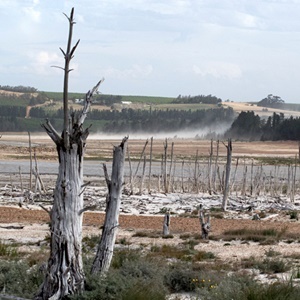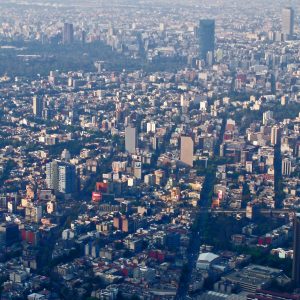The Stream, February 16: Unexpected Flash Floods Kill 9 People in South Africa’s Western Cape
The Global Rundown
Unprecedented rains bring deadly flash floods to South Africa’s Western Cape province. Washington state plans to block the Trump administration’s proposal to allow oil drilling along its coastline. A new study finds that temporary lakes and ponds release CO2 into the atmosphere even when they are dry. A growing “red tide” algal bloom spreads through southern Chile, threatening fish. Villages in Fiji are forced to relocate due to rising sea levels.
“It’s not just a question of relocating homes. You have to make sure that you have a water system, a sewer system in place… All of these things need to be taken into account.” –Aiyaz Sayed-Khaiyum, Fiji’s minister of economy, in reference to relocating Fijian villages as sea levels rise. Several villages have already been moved inland, and 40 others are earmarked for relocation in the near future. Al Jazeera
Latest WaterNews from Circle of Blue
Water Closely Linked to World’s Refugee Crisis – Tanker trucks, boreholes help quench refugees’ thirst.
Amid Political Quarrels over Cape Town Crisis, Engineers Prepare Dams for Day Zero – Equipment is in place to pull water from the bottom of reservoirs.
By The Numbers
9 Number of people killed in flash floods caused by heavy rain near the Theewaterskloof Dam, one of the main suppliers to Cape Town, South Africa. News24
In context: Circle of Blue’s coverage of Cape Town.
3,500 tonnes Amount of salmon that have been killed this year by a toxic “red tide” algal bloom in southern Chile. Salmon farms are carefully monitoring the red tide, which is expected to continue expanding over the next several weeks. Reuters
Science, Studies, And Reports
Researches at the University of Barcelona found that small lakes and temporary ponds emit CO2 year-round, even when they are dry. On average, the temporary water bodies have emissions levels similar to those of rivers, creeks, and streams. Researchers believe that the emissions could play an important role in the global carbon cycle. Science Daily
On The Radar
Washington state is preparing to block land leases and easements as part of a plan to stop the Trump administration from drilling oil off its shores. In January, the U.S. government announced a plan to allow offshore drilling in nearly every coastal state. The announcement has received pushback as state governors cite environmental and economic concerns regarding the plan. Reuters
Kayla Ritter is a recent graduate of Michigan State University, where she studied International Relations and Teaching English to Speakers of Other Languages. She is currently based in Manton, Michigan. Kayla enjoys running, writing, and traveling. Contact Kayla Ritter




